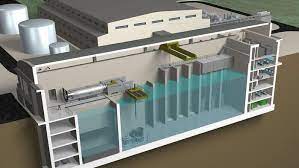
Breaking News
 The Self-Sufficiency Myth No One Talks About
The Self-Sufficiency Myth No One Talks About
 We Investigated The Maui Fires and The Cover-Up is Worse Than We Thought | Redacted
We Investigated The Maui Fires and The Cover-Up is Worse Than We Thought | Redacted
 The Amish Secret to Keeping Pests Out of Your Garden Forever
The Amish Secret to Keeping Pests Out of Your Garden Forever
 Scott Ritter: Full-Scale War as Iran Attacks All U.S. Targets
Scott Ritter: Full-Scale War as Iran Attacks All U.S. Targets
Top Tech News
 US particle accelerators turn nuclear waste into electricity, cut radioactive life by 99.7%
US particle accelerators turn nuclear waste into electricity, cut radioactive life by 99.7%
 Blast Them: A Rutgers Scientist Uses Lasers to Kill Weeds
Blast Them: A Rutgers Scientist Uses Lasers to Kill Weeds
 H100 GPUs that cost $40,000 new are now selling for around $6,000 on eBay, an 85% drop.
H100 GPUs that cost $40,000 new are now selling for around $6,000 on eBay, an 85% drop.
 We finally know exactly why spider silk is stronger than steel.
We finally know exactly why spider silk is stronger than steel.
 She ran out of options at 12. Then her own cells came back to save her.
She ran out of options at 12. Then her own cells came back to save her.
 A cardiovascular revolution is silently unfolding in cardiac intervention labs.
A cardiovascular revolution is silently unfolding in cardiac intervention labs.
 DARPA chooses two to develop insect-size robots for complex jobs like disaster relief...
DARPA chooses two to develop insect-size robots for complex jobs like disaster relief...
 Multimaterial 3D printer builds fully functional electric motor from scratch in hours
Multimaterial 3D printer builds fully functional electric motor from scratch in hours
 WindRunner: The largest cargo aircraft ever to be built, capable of carrying six Chinooks
WindRunner: The largest cargo aircraft ever to be built, capable of carrying six Chinooks
Data-Centers & Small Nuclear Reactors - A Match Made In Heaven?

Powering these data centers is fast becoming a problem. Northern Virginia, for instance, hosts the largest concentration of data centers in the world. Tech giants like Amazon, Facebook, Microsoft, and Google have invested $126 billion in Virginia data centers. And the region's insatiable appetite for power continues to grow due to surging demand for cloud computing services.
Without reliable power, cloud service providers can't grow to match the pace of increasing demand. But the electrical grid can't keep up. Right now, power transmission bottlenecks in Northern Virginia could delay new data center development into 2026.
Data center developers across the pond are facing the same problem. Microsoft and Amazon halted plans to build new data centers in Dublin, Ireland, because of power shortages and threats of rolling blackouts. And British officials paused construction on new houses in West London until 2035 because data centers had already maxed out the local grid's capacity.
And it's not just power consumption that is sparking opposition to data centers. Concerns about greenhouse gas emissions, water usage, noise pollution, and the overall sustainability of data centers are fueling local opposition that is constraining where—or even whether—data centers get built.

 RNA Crop Spray: Should We Be Worried?
RNA Crop Spray: Should We Be Worried?

